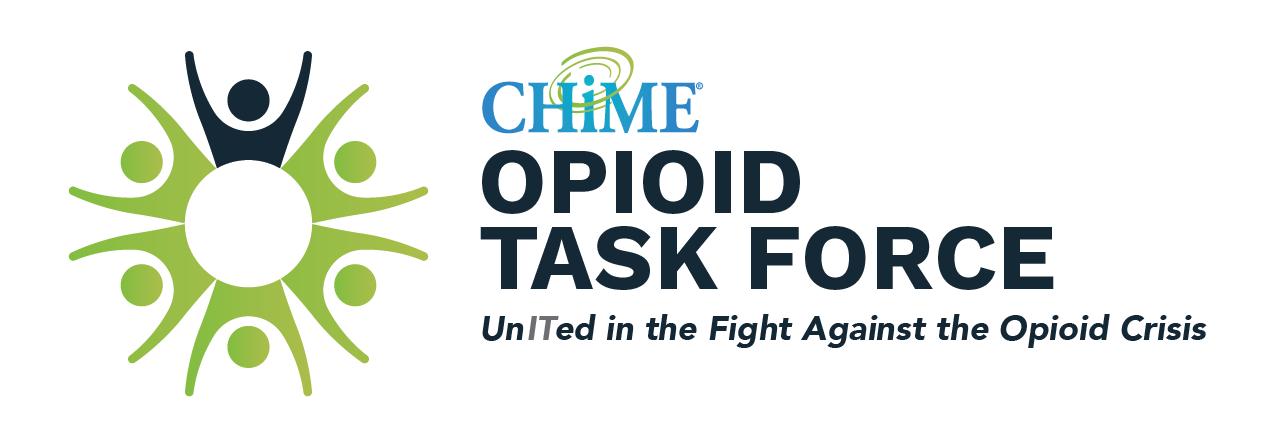EPIC – PDMP Strategy Survey
Overall strategy responding to the opioid crisis (in addition to PDMP integration)
- Epic established a Company Wide Initiative to prioritize software development across applications to help our customers address the opioid epidemic. Some of the functionality from this CW include PDMP integration, morphine equivalency calculations, and decision support at prescribing to account for quantity, duration, and morphine equivalence. A registry was developed for reporting on quality metrics. A predictive model to assess risk of opioid abuse is in development.
- We created an opioid safety taskforce that includes representatives from R&D, technical services, and other roles to help ensure customers understand and use the opioid-related enhancements. This group serves as evangelists to assist with adoption of existing opioid-related functionality and workflows, and as a point of contact for new development requests. This group identifies Epic customer success stories to share with others in the Epic community.
- Epic provides venues for our customers to collaborate and share their opioid-related initiatives and learn about our plans for development. This includes frequent webinars with customers to communicate our development progress and for customers to share their outcomes. We have a focus group for opioid safety at our annual Users’ Group Meeting, as well as a dedicated forum on our intranet, the UserWeb, for customers to share ideas regarding opioid management.
Overall approach to PDMP integration (Point to point, hub and spoke? Where in workflow?
- EPCS, Other – for example: all encounters vs EPCSonly
- Epic customers connect to the PDMP using single sign-on (SSO) to pass user and patient credentials to the PDMP portal or using an NCPDP interface. Epic is PDMP vendor neutral, which means that we can integrate with different states’ PDMPs, regardless of which technology they use (3rd party, HIE, home grown, etc.).
- The user can query the PDMP at any time in a patient encounter, not just during order entry. Epic customers report that this process takes only seconds. The query can happen automatically prior to the MD seeing the patient, if state rules allow. Decision support at the point of order entry can be used to remind the prescriber to check the PDMP if they have not done so already.
- Epic will track whether the prescriber checked the PDMP.
Plans and progress in interoperability with state PDMPs
- Our goal is for all Epic community members to integrate with the PDMP as their state allows, typically NCPDP interface, SSO, or both. As state PDMPs are interconnected, they will often also provide prescription dispense information from other states, depending on their regulations.
- We recommend industry standard integration for more complete adoption. If a state is considering a non-industry standard method of PDMP integration, we will provide feedback on the benefits on using an industry standard method.
Interoperability with PDMP Vendors.
- Epic is vendor neutral. The state determines how a healthcare system’s EHR will integrate with their PDMP database. This could be direct integration with the PDMP, or via a 3rd party such as Appriss, Logicoy, or NIC. Regardless of the method of integration chosen by the state, Epic customers can integrate with the PDMP using the industry standard NCPDP interface or SSO integration methods.
- Epic does not resell NarxCare or similar 3 rd party products. Instead, Epic customers can purchase those products directly from the 3 rd party as needed.
Client case studies – include 2-3 representative client examples
- In 2018, there were 6 HIMSS Davies Award winners that presented an opioid-related use case. Five of those 6 HIMSS Davies Award winners use Epic. The presentations are available here: https://www.himssconference.org/education/best-practices-opioids- symposium
The organizations are:
- Ochsner Health Systems: Leveraging EHR for Opioid Stewardship
- Duke: Perioperative Care, Enhanced Recovery After Surgery and Reducing Opioid Dependency
- Bon Secours Mercy Health: Leveraging Analytics to Change Opioid Prescribing Behavior
- Rush University: Standardizing Opioid and Drug Abuse Referrals to Rehabilitation
- Sparrow Hospital: Anticipating and Preventing ADEs: Decreasing the Need to Rescue Hospitalized Patients from Opioid-related Complications
Several Epic organizations have demonstrated at least 50% reduction in opioid prescribing:
- Geisinger
- Anne Arundel Medical Center
- Yale New Haven Health System
- MetroHealth
- Project DAWN (Deaths Avoided with Naloxone) is a program that provides naloxone kits to those at high risk of overdose. MetroHealthreports over 1,200 lives saved with Project DAWN.
- They’ve also reduced opioid prescriptions by over 33% over the course of 18 months. They attribute some of their success to PDMP integration with Epic, opioid abuse screening questionnaires in Epic, and reports in Epic for monitoring provider prescribing habits.
- Henry Ford Health System integrates with Michigan’s PDMP. When clinicians order a schedule II-V drug, the system automatically queries the Michigan Automated Prescription System at the same time to see previous opioid prescriptions the patient
